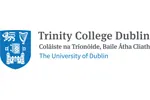About Higher Diploma In Education (Primary Teaching), PG:DipHE - at Trinity College Dublin
The Higher Diploma in Education (Primary Teaching) is a professional course, which is intended to provide for the academic and professional requirements of primary school teachers. It is taught jointly by the School of Education and two associated Colleges of Education – Colaiste Mhuire, Marion and the Froebel College of Education, Sion Hill, Blackrock. Students attend the majority of courses within their chosen College of Education and attend foundation courses, in common with students from other Colleges of Education, within the School of Education.
The H.Dip (Primary) is an integrated course of study designed to provide student teachers with the range of knowledge, skills and attitudes related to the profession of primary school teaching. Accordingly, throughout the course, considerable emphasis is placed on the study of foundation complementary work in areas such as arts education, religious education, physical education, social personal and health education (SPHE), information and communication technologies (ICT), social, environmental and health education (SESE) and inclusive education. School experience is regarded as central to the H.Dip. (Primary) programme and there are three periods of teaching practice designed to give students an opportunity to develop their practical skills of observation and teaching. Students who successfully complete this course are recognised by the Department of Education and Science as qualified teachers, following a successful year of probation, in accordance with Rule 157 of the Rules of National Schools.
The course is of eighteen months duration and is full-time. It commences in early February and is divided into three terms, which run from February to June, September to December, and from January to June. H.Dip. (Primary) students register only with the associated college of their choice for the first term of the course. Students register both with the associated college and the University of Dublin, Trinity College for the second and third terms of the course. Graduate students registered with Trinity College have full access to the facilities of the University.
Entry RequirementsCandidates for admission to the programme leading to the H.Dip. (Primary) must possess an approved third-level degree. In addition, applicants must also have secured at least grade C in higher level Irish and at least grade D in mathematics (ordinary or higher level) and at least grade C (ordinary level) or grade D (higher level) in English. Candidates who sat the Leaving Certificate examination prior to 1969 must have secured honors in Irish and passes in English and mathematics. Similar requirements apply in the case of applicants who have sat the Northern Ireland G.C.S.E and G.C.E. ‘A’ level examination.
A pass in a University first year arts examination in Irish, English or mathematics will be accepted in lieu of Leaving Certificate/G.C.E./G.C.S.E. requirement for that particular subject. In the case of Irish, a grad C in the Matriculation examination will also be accepted in lieu of the Leaving Certificate examination/G.C.S.E. requirement. In the care of mathematics, a pass in that subject in the Matriculation examination will also be accepted in lieu of the Leaving Certificate examination/G.C.S.E. requirement.
Academic progress and examinationsThe evaluation of work for the diploma involves a combination of continuous assessment and final examinations. In order to advance with their class students must satisfactorily complete the assignments and must pass the required examinations. Students should note that full attendance is required at all lectures and tutorials. Annual examinations are held in the final Trinity Term, during May and early June, generally over a period of three to four weeks. Supplemental examinations are held in the following September. Successful candidates for the H.Dip. (Primary) are divided into three classes according to merit. They are awarded first class honors, second-class honors and pass respectively, the names in each class being arranged in alphabetical order. The names of candidates in the second class are further grouped in two divisions, first and second.


